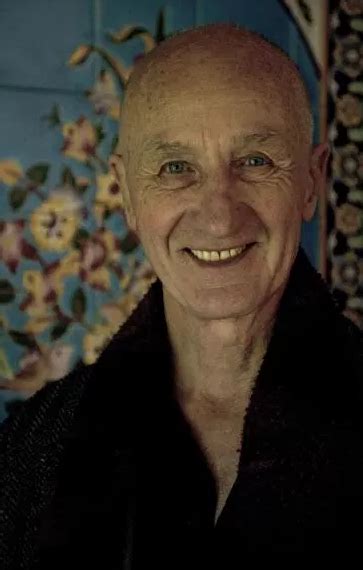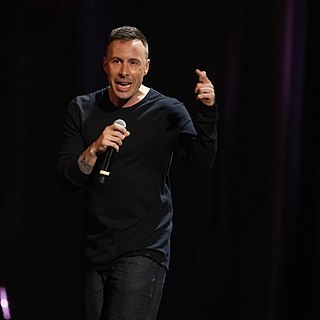A Quote by Terrence Rafferty
Henri-Georges Clouzot's cool, clammy, twisty 1955 thriller Diabolique is an almost perfect movie about a very nearly perfect murder, a film in which the artist's methods and the killers' are ideally matched, equal in cunning and in ruthlessness. The screenplay, adapted by Clouzot and three other writers from a novel by the crack French crime-fiction team of Pierre Boileau and Thomas Narcejac, is a fantastically elaborate piece of contrivance, but the scrupulous realism of the direction makes the unnatural tale somehow feel entirely likely.
Quote Topics
About
Adapted
Almost
Almost Perfect
Artist
Cool
Crack
Crime
Cunning
Direction
Elaborate
Entirely
Equal
Feel
Fiction
Film
French
Ideally
Killers
Likely
Makes
Matched
Methods
Movie
Murder
Nearly
Novel
Other
Perfect
Piece
Realism
Ruthlessness
Screenplay
Somehow
Tale
Team
Thomas
Three
Thriller
Unnatural
Very
Which
Writers
Related Quotes
The fiction I've written and published is certainly inflected by the work of authors I was reading or translating at the time. One of my methods for developing my own voice in fiction, a process I am taking very slowly and deliberately, is through these very intense encounters with certain writers. Strength and power in fiction is being able to resist these intoxicating voices, recognizing that they are the signatures of other writers and not one's own.
My greatest sense comes from the experience of performing in the movie. When I have a great experience, that becomes a perfect movie. If it makes a nickel, it's still perfect. The same is true with a movie that's a bad experience. If it makes a bejillion dollars, I will hate it till the end of time.
The artist usually sets out -- or used to -- to point a moral and adorn a tale. The tale, however, points the other way, as a rule. Two blankly opposing morals, the artist's and the tale's. Never trust the artist. Trust the tale. The proper functions of a critic is to save the tale from the artist who created it.
I read a blog about this young filmmaker in the Philippines who made a short film, and one of the characters in the film reads my novel and then starts discussing the novel with someone. The idea that my book can inspire another artist and be part of that other artist's work... that's the reason I write.
The perfect life, the perfect lie, I realised after Christmas, is one which prevents you from doing that which you would ideally have done (painted, say, or written unpublishable poetry) but which, in fact, you have no wish to do. People need to feel that they have been thwarted by circumstances from pursuing the life which, had they led it, they would not have wanted; whereas the life they really want is precisely a compound of all those thwarting circumstances.




































